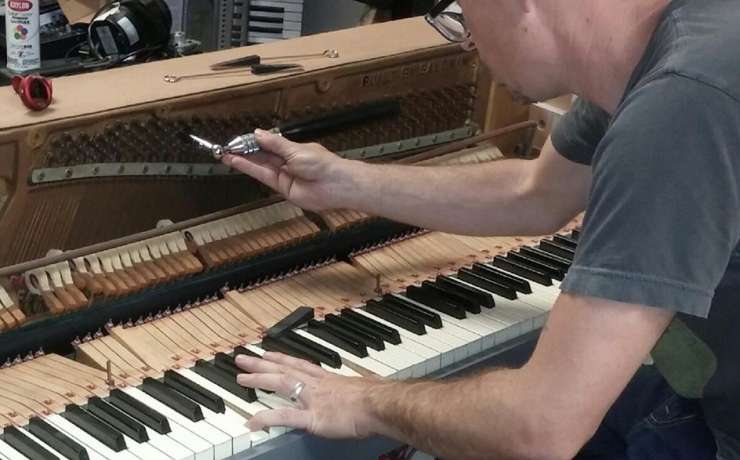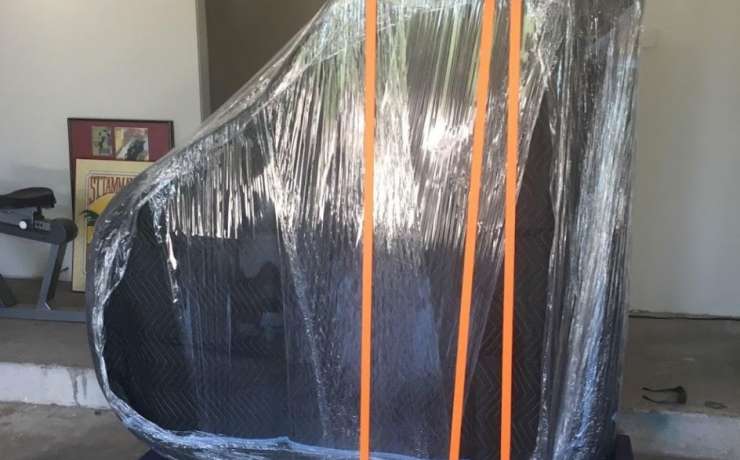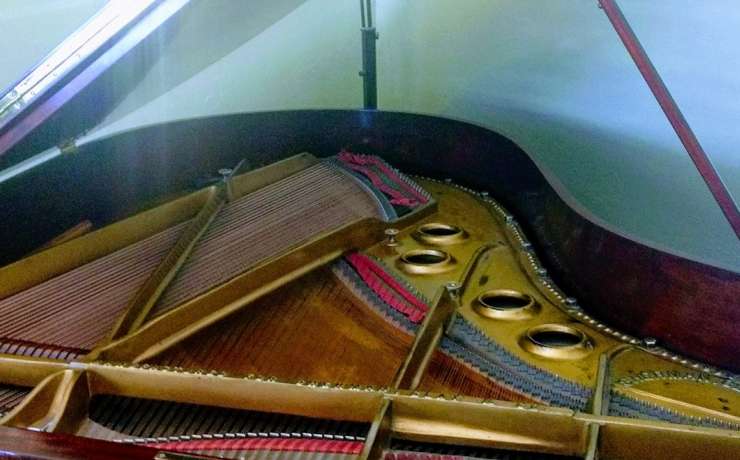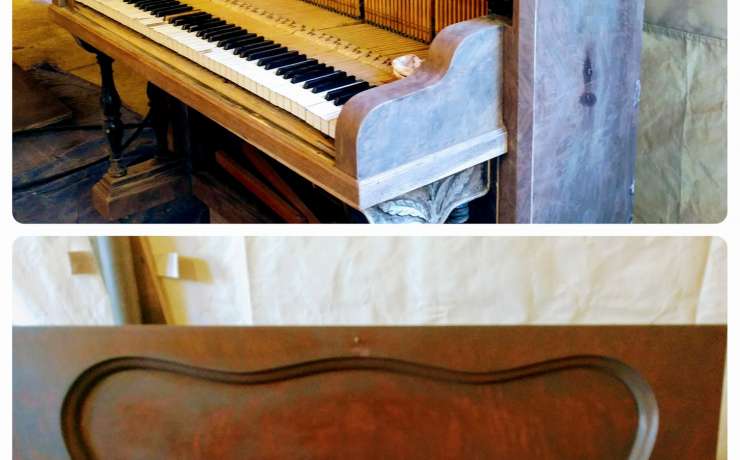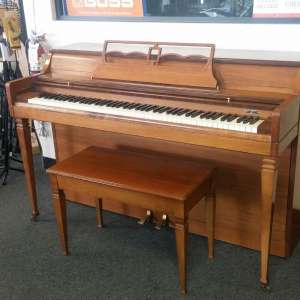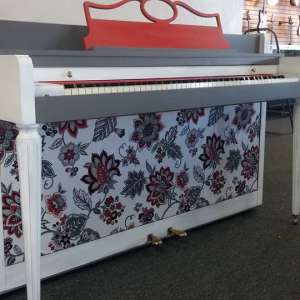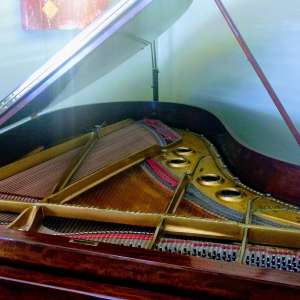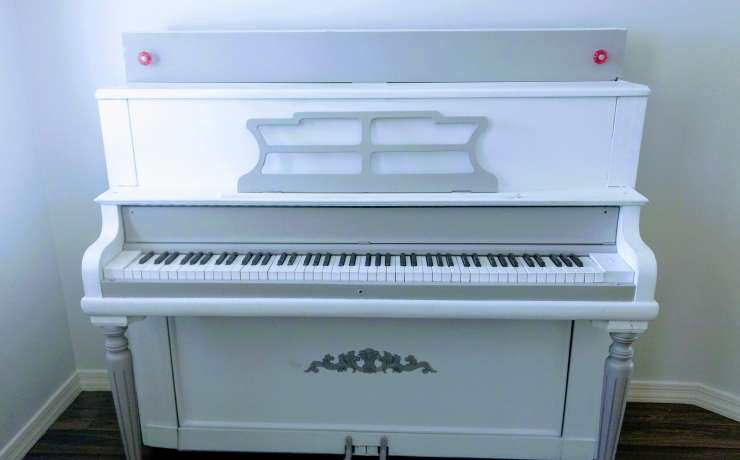Your Choice For Who Provides Your Piano Services Is Also Important
Your Piano Is Important To You
Maybe you have inherited an heirloom grand or found an old upright piano at the thrift store. We look forward to helping you improve your piano's sound and appearance, whatever its shape, age or condition. Our family has provided musical instrument services across the Southwest for years. We understand the impact our unique desert climate has on the delicate piano parts. We will work with you - and your budget - to make sure that your piano will sound and look its best for years to come.
We will work closely with you to offer exceptional and affordable piano services, whatever your needs are. JP Lawson provides tuning, cleaning, repair, customization and much more for your valued musical instrument.
Tucson's Best Reviewed Professional Piano Care Provider
Tucson Piano Specialist J.P. Lawson
J.P. Lawson Piano Services of Tucson, Arizona is Southwest's highest rated provider of affordable and professional piano tuning and piano services. Piano Restoration and refinishing services, piano repair, and customization services are also available across Arizona.
Piano Specialist Jason Lawson has over 15 years of professional experience providing piano services in Tucson. He, like the rest of his family, has played the piano most of his life. He understands that every instrument and musician has unique needs. We're here to answer questions every step of the way and to discuss any concerns you have. You know your piano and we appreciate that.
We take the time and care to do the job completely and correctly. We don't cut corners and we will never charge you more than agreed upon. We are passionate about our work and will listen to what YOU need to make your music sound incredible. Jason's lifelong experience with pianos and his appreciation of musicians' needs guarantees that every piano service project is both personal and professional.
View Our Portfolio
Repairs and Restorations
How Do You Know If Your Instrument Needs Piano Services Like Piano Tuning?
Why and When You Need Piano Services
Many factors cause pianos to go out of tune, particularly atmospheric changes. For instance, changes in humidity will affect the pitch of a piano; high humidity causes the sound board to swell, stretching the strings and causing the pitch to go sharp, while low humidity has the opposite effect.
Pianos need to be tuned regularly, usually once every six months for domestic pianos, and always just before a performance in concert halls. The longer a piano remains out of tune, the more time and effort it will take for a technician to restore it to proper pitch. Each note in the middle and upper range is sounded by more than one string, and these may get slightly out of tune with each other. Pianos that are more than slightly out of tune tend to be unpleasant to play and listen to, to an extent that varies with the ear of the listener. A tuning hammer and tuning mutes are the main tools that piano technicians use. Some tuners use pure aural techniques while some tuners use electronic tuning devices. We generally use both, unless one of the other techniques is more appropriate.
Changes in temperature can also affect the overall pitch of a piano. In newer pianos the strings gradually stretch and wooden parts compress, causing the piano to go flat, while in older pianos the tuning pins (that hold the strings in tune) can become loose and don't hold the piano in tune as well. Frequent and hard playing can also cause a piano to go out of tune. For these reasons, many piano manufacturers recommend that new pianos have a piano tuning done four times during the first year and twice a year afterwards.
An out-of-tune piano can often be identified by the characteristic "honky tonk" or beating sound it produces, which indicates that a piano service is needed. This fluctuation in the sound intensity is a result of two (or more) tones of similar frequencies being played together.
For example, if a piano string tuned to 440 Hz (vibrations per second) is played together with a piano string tuned to 442 Hz, the resulting tone beats at a frequency of 2 Hz, due to the constructive and destructive interference between the two tones. Likewise, if you play a string tuned to 220 Hz (with a harmonic at 440 Hz) together with a string tuned at 442 Hz, the same 2 Hz beat is heard. Because pianos typically have multiple strings for each piano key, these strings are tuned to the same frequency to get rid of beats.
The frequency of vibrations determines the pitch of the note. The string's length, mass, and tension determine the vibrating string's frequency. Piano strings are wrapped around tuning pins. A piano tuner will incrementally turn the pins to adjust the strings tensions during a piano service and piano tune.
J.P. Lawson Piano Services does more than piano tuning, however. Our services also include Voicing, Regulation and Refurbishments, also known as piano facelifts!
The felt hammers of the piano tend to harden over time, as the felt becomes compressed by repeated impact. They also form grooves at the points of contact with the strings. Harder hammers produce a brighter tone quality, which may ultimately become harsh and undesirable. Piano technicians can soften hammers using special tools called voicing needles. They also sometimes use special hardening agents when the hammers are too soft (though this practice is controversial among some technicians). In either case, an important goal is uniform tone quality across the piano, since the hammers are not used with equal frequency and therefore tend to wear unevenly. How much and how forcefully the piano is played is a factor in how often a piano is played, as are the piano's setting and the preferences of its players.
Over time, the strings will wear grooves into the surface of the hammers. The grooves eventually become deep enough, and the head of the hammer flattened enough, that voicing cannot restore the piano's tone. At this point, a technician can file the hammers, restoring their original ovoid shape and pristine surface at the expense of making them somewhat smaller. This process may repeat several times, until there is not enough felt left on the hammers for another filing, and they must be replaced.
Over time, the performance of a piano action tends to decline, due to the compression of felt, warping of wood, and other types of wear. A skilled technician can restore it to optimal precision, in a process called regulation, which involves adjustments ranging from turning a small screw to sanding down a wood surface. Many new pianos are not perfectly regulated when released from the factory, or quickly lose their regulation when moved to their new home, and benefit from regulation in the store or in the home.
The goal of regulation is to make the piano's touch and sound consistent across all notes, allow it to comfortably achieve the widest possible range of dynamics, and make the keys responsive to even the most rapid or most subtle motions of the player.
There are many dozens of types of regulation a piano may require. The most important include adjustment of:
Let-off, the point when the hammer disengages from the jack and flies freely. If the let-off is too large, it can be very difficult to achieve a pianissimo, to execute rapid trills, and to play powerful fortes; if too small, notes can acquire a "pinched" sound, or even block.
Drop, how far the hammers fall back after let-off. This affects the responsiveness of the action.
Repetition springs in a grand piano, which allow a hammer to repeatedly strike with minimal lifting of a key. If a spring is too springy, it can cause double-strikes; if not springy enough, it becomes difficult to repeat a note.
Key weights (and, in some actions, weight-regulating springs) control the inertia of the keys. A technician can add, remove, or change lead weights in the keys to change how light or heavy the keys feel to the player.
Pianos have a limited lifetime. However, different parts have different lifetimes: for example, on a heavily used but well-cared-for instrument, the hammers might last less than five years while the soundboard might last fifty years and more. Regular replacement of worn parts can therefore extend a piano's lifetime by decades – even indefinitely, provided that the piano's structural support (i.e. the frame) remains sound (and sometimes the frame can also be repaired).
In used pianos, the frame and some parts of the action may remain in good condition. We are able to replace some components while eliminating the need to buy a whole new piano. J.P. Lawson Piano Services replaces strings, pinblock, bridges, soundboard and ribs, hammers, actions, strings and piano keys.
Restoration is labor-intensive, and therefore expensive; it is therefore generally done only if the original piano was of high quality, or the instrument has historical or sentimental value. Tucson Piano Services professional Jason Lawson will speak with you about what you want and need from this type of service.
Articles
Woodshop
Wood Tells Us A Story
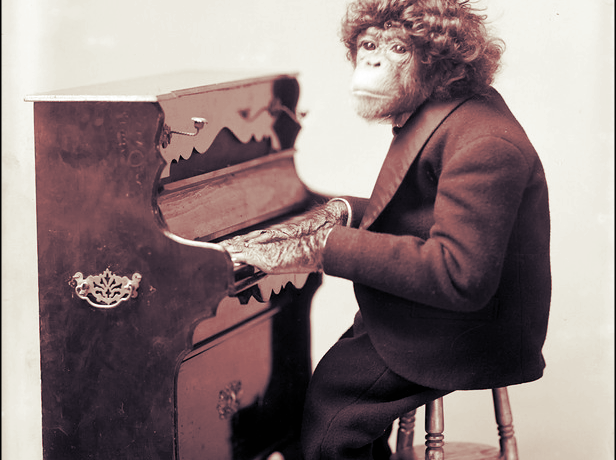
The delicate pins and strings inside a piano are adjusted by a piano tuner to ensure that every key produces the correct tone. To tweak strings and check for proper pitches, professionals use a variety…
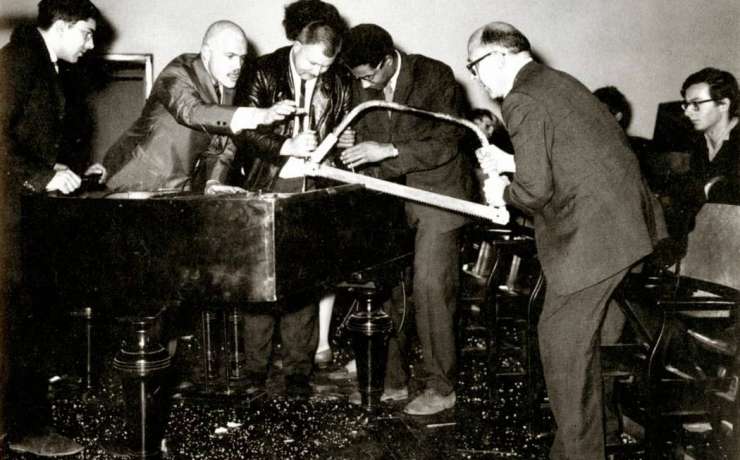
Although a piano appears to be a solid instrument that does not require tuning, this is not the case. In fact, whether or not a new piano is played, it is recommended that it be…
We Travel Across The Southwest
Live Outside Of Tucson? Let Our Piano Tuners And Experts Come To You. Piano Services Across Southern Arizona.
